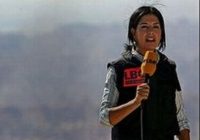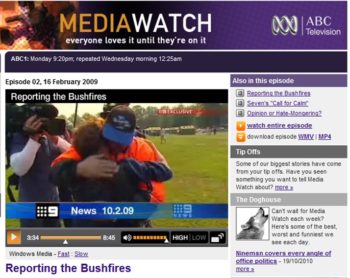Look-at-me journalism all the rage
It’s not easy being a foreign correspondent in a crisis. They often find themselves part of the story they’re covering, so the secret is to be present but translucent, letting the story shine through their own experiences, offering their audience a guiding hand without their own voice overwhelming the narrative. Not all reporters do this well all the time and they fall victim to “look at me journalism”. Here’s a cautionary tale. Read More










